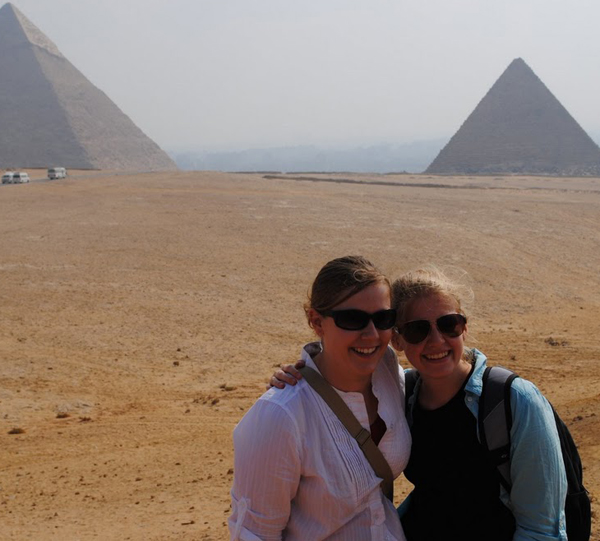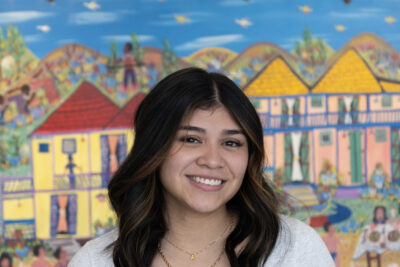Elizabeth King is a sophomore student writing from Goshen College’s first Study-Service Term in Egypt. “The Egyptian Maple Leaf”‘ is a weekly column written by students currently on SST in Egypt.
On the metros in Cairo, there are two cars on each train reserved exclusively for women. While females are more than welcome to ride on any of the metro cars, many people, including the women in our group, choose to ride on the reserved cars. From day one we were encouraged to ride on these reserved cars, simply to avoid harassment and unwanted attention from men. Unfortunately, it is not uncommon for women, and especially foreigners, to be hassled by men here in Cairo. Riding in the women’s car is one way we’ve learned to minimize this.Daily rides with the women of Cairo have provided some interesting insight into the lives of the females here. One of the most interesting things for me has been observing the clothing that Egyptian women wear. As a general rule, although this is not always true, Muslim women cover their hair and Christian women do not. Some women cover literally every part of their bodies except for their eyes: they wear long black dresses, head coverings, black gloves and stockings. Other women wear more Western clothing, but are still completely covered except for their faces, hands and feet. Christian women might wear short-sleeved shirts and not cover their heads, but all women here dress conservatively by our American standards (except, of course, for many of the tourists).
The movement and flow of people on the women’s car also intrigues me. Younger women will almost always give up their seats for pregnant women, women with children or elderly women. There is no shame in asking people to scoot a bit closer together, to squeeze one more person onto a bench. Oftentimes, women or even men will get on a car at one of the stations and try to sell things to women. People sell tissues, head scarves, dictionaries, super glue, gift bag tags, children’s books–the list goes on. The vendor will usually get off at the next stop, wait for the next train to come, and repeat the process, perhaps all day long.
The women’s cars have also been a good place for us to try and practice our Arabic and interact with Egyptian women. Occasionally, women will try and initiate conversations with us and we do our best to respond with our limited language skills. However, the women are often very friendly and are always forgiving when we make mistakes. Women have sometimes assumed that we are English teachers and have asked us to come and teach English at various schools in Cairo! It is this type of interaction that makes riding women’s cars so interesting. I think I can speak for all of the females in our group when I say that riding on the women’s car has been a very valuable and insightful experience for all of us.



